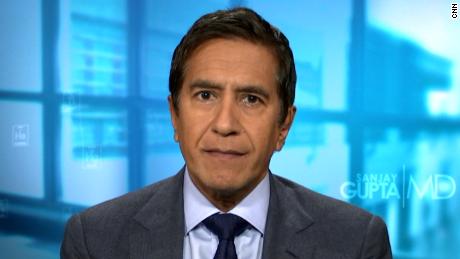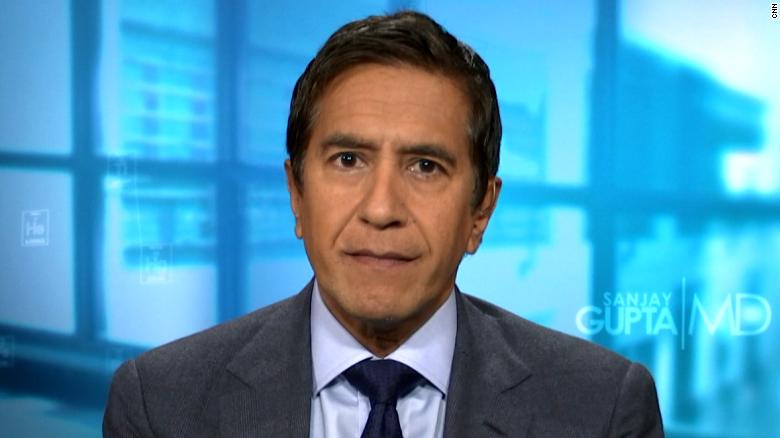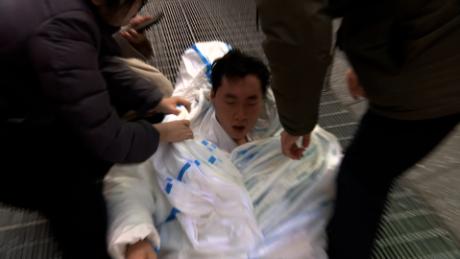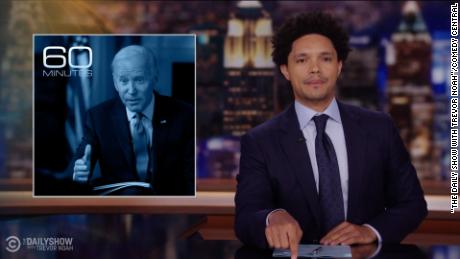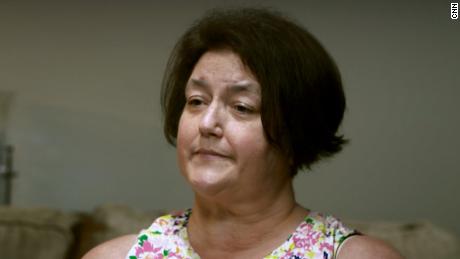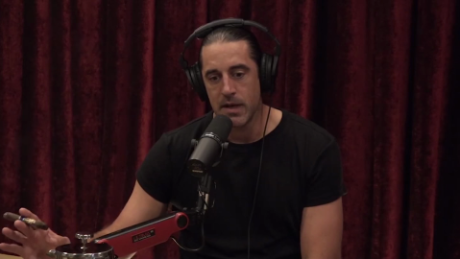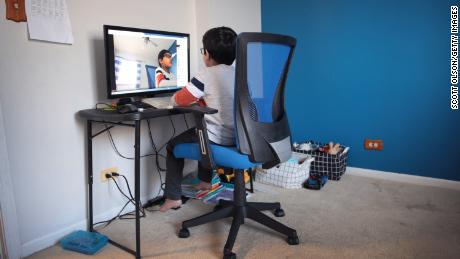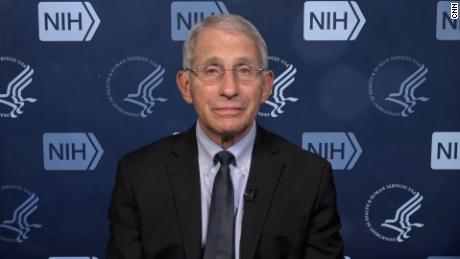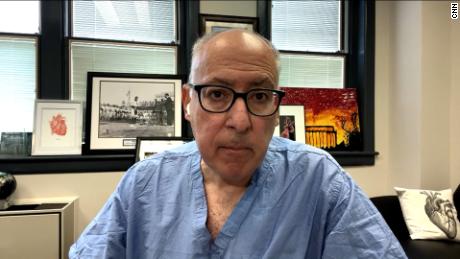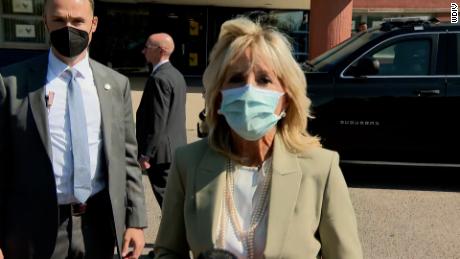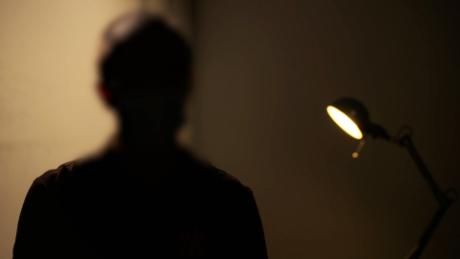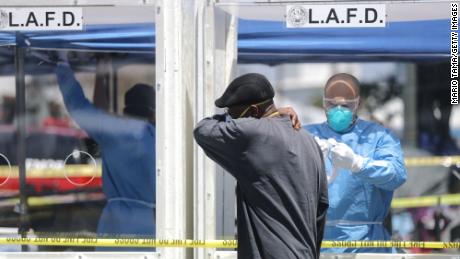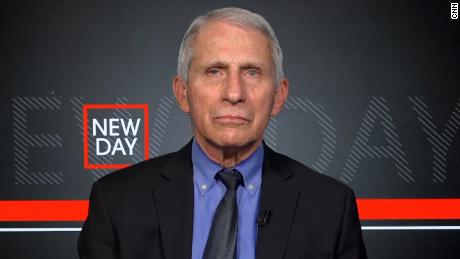(CNN)Only about half of fully vaccinated nursing home residents have received a booster dose of Covid-19 vaccine, leaving a high-risk group especially vulnerable as Covid-19 cases rise across the country and concern about the Omicron variant builds.
While Covid-19 vaccines offer critical protection against severe disease, studies have shown that their effectiveness may wane over time. This is especially true for seniors age 65 and older. And early studies suggest a heightened need for a booster in order to maintain sufficient protection against the Omicron variant.
On September 24, the US Centers for Disease Control and Prevention recommended that all seniors and residents in long-term care settings receive a booster dose of Covid-19 vaccine, guidance that was later expanded to all adults who are at least six months past completing their initial two-dose series of Pfizer/BioNTech or Moderna vaccine or two months after a Johnson & Johnson shot.
By the end of October, a month after the initial recommendation, about a quarter of fully vaccinated nursing home residents had received a booster, according to data published Friday by the CDC.
Now, two months after the initial recommendation, only about half (51%) have received a booster. But closer to 80% of nursing home residents are eligible to receive a booster.
When Covid-19 vaccines were first authorized for emergency use a year ago in the US, it was top priority to reach nursing home residents as quickly as possible. Many of the most deadly outbreaks across the country were among elderly people in congregate settings, and nearly 1 in 5 people who have died from Covid-19 in the US -- nearly 143,000 deaths -- have been among nursing home residents and staff.
The federal government partnered with large pharmacy chains including CVS and Walgreens to bring vaccine doses directly to residents of long-term care facilities early on. But programs of a similar scale for this round of booster doses have not materialized, leaving nursing homes to battle a number of logistical hurdles.
"My sense is that every nursing home is figuring this out on their own," coordinating with local health departments to obtain the appropriate number of doses at the right time, said Brian McGarry, an assistant professor at the University of Rochester's Department of Medicine whose research focuses on aging.
"I have heard anecdotally from some nursing homes that -- like many aspects of the economy and health care -- there is a shortage of pharmacists," McGarry told CNN. "They're trying to serve the general public and don't have the staff to send people out to nursing homes to run in-house clinics."
At a media briefing last week, Sara Roszak, vice president of health and wellness strategy for the National Association of Chain Drug Stores said that the shift in strategy was "a change in the moment of the response and what was needed at this time." Over the past year, millions of pharmacies across the country have built up a large infrastructure to administer Covid-19 vaccines, and the emphasis now is to "push people to where the vaccinations are."
But there's "flexibility," Roszak said, with the option for facilities to request help and pharmacies that are part of the federal retail program to sign up to work with them directly.
After reaching record lows in the late spring and early summer, new Covid-19 cases started to rise among nursing home residents in July.
Nationally, about 87% of nursing home residents are fully vaccinated, a significantly larger share than the 60% of the general population.
And while earlier waves of community spread led to even worse waves within local nursing homes, more recent waves of community spread have been less severe within nursing homes.
Risks from staff and visitors remain
But nursing home residents are far from insulated from the risk Covid-19 continues to pose.
Only about three-quarters of nursing home staff are fully vaccinated with their initial series of one or two doses -- fewer than two-thirds in some states -- and only about a quarter of fully vaccinated staff have received a booster dose, according to federal data.
"It's very alarming to have unvaccinated staff coming in. The work is very intimate, very up-close and personal, and even with good PPE there's a high risk of exposure there," McGarry told CNN. "Vaccines do seem to make a difference."
McGarry and others published a paper last week that found that nursing homes that had the lowest staff vaccination rates had more than twice as many Covid-19 cases among residents and nearly three times as many deaths than nursing homes with the highest staff vaccination rates.
"Getting those first doses to staff who are still unvaccinated should be at the top of list, and right under that is getting boosters to everyone eligible."
A CMS spokesperson told CNN that the agency "is concerned about the risk unvaccinated health care staff pose to staff, and pursued a vaccination requirement to address this risk." Nursing home operators are encouraged to use all tools at their disposal to increase vaccination among residents and staff -- including educational resources and vaccination clinics -- and CMS will "work with nursing homes to address staff and resident concerns with compassion and by following the science."
While nursing homes are now better equipped with tools to manage the virus -- including more readily available PPE equipment and better testing -- many have lifted lockdown restrictions and are allowing visitors.
Get CNN Health's weekly newsletter
Sign up here to get The Results Are In with Dr. Sanjay Gupta every Tuesday from the CNN Health team.
Nursing homes can -- and should -- implement vaccination requirements for staff, but the same rules won't apply for visitors, McGarry said. "That certainly creates a new vector. They're the wild card."
Based on CDC data, booster uptake among nursing home residents is about the same as among the general senior population.
Booster coverage among residents ranges from 81% in North Dakota to 30% in Arizona. It tends to be higher than average in the Northeast and Great Plains regions, and lower than average in the South.
The federal data includes information submitted through December 5 by facilities certified by the US Centers for Medicare and Medicaid Services. Coverage may be higher than reported, as data from the most recent week is not yet complete and the share of nursing homes reporting data into the CDC varies by state.
